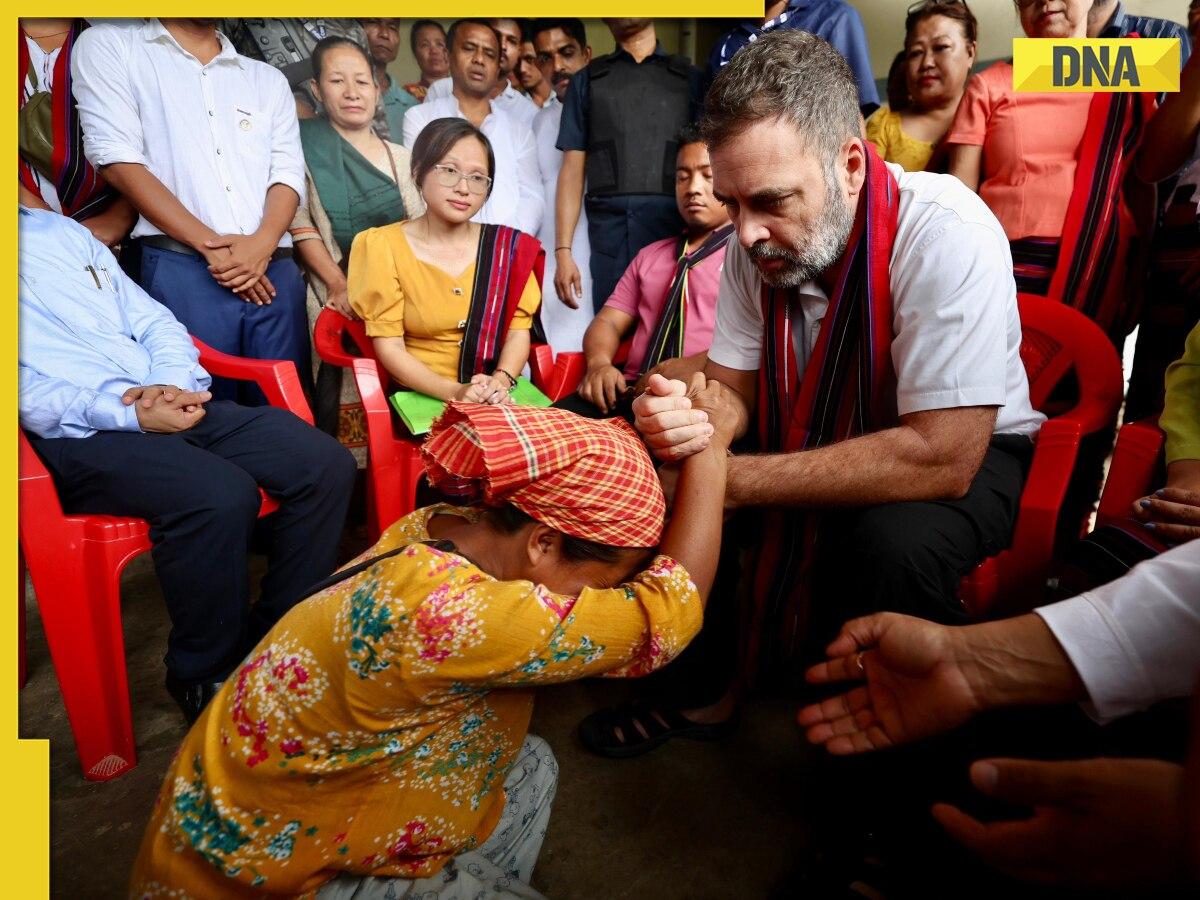
Leader of Opposition in Lok Sabha, Rahul Gandhi, paid a significant visit to a relief camp in Manipur’s Jiribam district on Monday, according to a prominent party leader. This visit marks an important stop in Gandhi’s ongoing efforts to connect with affected communities and understand the ground realities of the humanitarian situations across different regions.
Gandhi stopped at the Jiribam Higher Secondary School relief camp where he took time to engage in meaningful conversations with the internally displaced people residing there. This interaction showcased Gandhi’s commitment to directly addressing the issues of the affected populace and provided him with firsthand insights into their grievances and needs. Speaking on the matter, the party leader mentioned, “At Jiribam relief camp, Gandhi talked to the internally displaced people, lending them a listening ear and attempting to understand their plight.”
This recent visit follows a previous stop in Assam where Gandhi also took the time to interact with violence-affected individuals in a relief camp, reaffirming his dedication to making personal connections with those affected by strife. After completing his Assam visit, he proceeded to Jiribam by road, determined to continue his outreach.
Earlier in the day, Rahul Gandhi’s journey began at Assam’s Kumbhirgram airport. He was warmly received by Bhupen Borah, the president of the Assam Pradesh Congress Committee, accompanied by other senior leaders from both state and district levels. This warm reception underscored the solidarity within the Congress party and their collective focus on addressing critical issues affecting the region.
During his brief stay at the airport, Borah took the opportunity to submit a memorandum to Gandhi, urging him to escalate the issue of Assam’s devastating floods to the Centre as a special case. The memorandum highlighted the urgent need for adequate relief and compensation for the severe losses incurred due to the widespread deluge. Borah’s move emphasized the Congress party’s proactive steps towards central intervention in state-specific crises.
.
Rahul Gandhi’s tour comes at a critical time when both Assam and Manipur are dealing with significant humanitarian challenges. The floods in Assam have caused widespread destruction, leading to loss of life, property, and vast displacement. Similarly, Manipur has been grappling with issues of internal displacement due to various conflicts, making the relief camps a focal point of humanitarian aid and political attention.
In his interactions, Gandhi not only listened to the grievances of the people but also reassured them of his commitment to bringing their issues to the nation’s legislative and executive bodies. His visit to the relief camps highlighted not just a political gesture, but a deeper understanding and empathy towards the tribulations faced by the local populations. This move could also reinforce the Congress’s stance and efforts in advocating for better crisis management policies and more robust support systems at both state and national levels.
The broader focus of Gandhi’s visit includes addressing the systemic issues that lead to such crises. This involves dialogues with local leaders, administrators, and affected citizens to develop a comprehensive understanding that can drive more effective solutions. By putting a spotlight on the issues faced by internally displaced individuals and flood victims, Gandhi is advocating for a collective and sustainable approach towards rehabilitation and relief.
Gandhi’s series of visits to troubled areas like Assam and Manipur underscores a strategic approach to regional politics, where the goal is not only to gather support but also to implement real change. This proactive strategy could play a pivotal role in shaping the Congress party’s future policies and their actions in dealing with similar situations nationwide.
In conclusion, Rahul Gandhi’s visit to Manipur’s Jiribam district represents a significant step in addressing the immediate needs of displaced individuals and reflects a broader commitment to tackling regional crises through empathetic and informed leadership. It remains to be seen how these interactions will influence subsequent political and administrative actions, but the direct engagement with affected communities sets a precedent for the kind of responsive and responsible governance that Gandhi continues to advocate.










